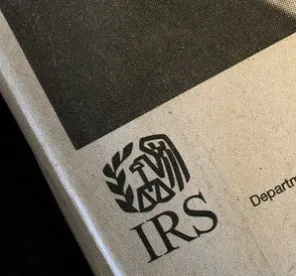Do you have a balance due with the IRS? If you do, it is likely that the balance includes penalties and interest. Included among the various penalties that may apply are penalties for late filing and for failure to timely pay the tax due. Under certain circumstances, each of these penalties can be up to a maximum of 25 percent of the unpaid tax. For example, if you had unpaid tax of $10,000 and the maximum penalties applied, the balance due with the IRS, before interest, could be approximately $15,000. As you can see, these amounts can add up quickly. There are options to obtain penalty abatement/waiver and for interest abatement. But not all taxpayers will qualify for relief.
Penalty Abatement Options
There are three main avenues to obtain penalty abatement/waiver.
-
First Time Penalty Abatement. If the following are true, you may qualify for administrative penalty relief from penalties for failure to timely file, failure to timely pay or failure to deposit taxes:
-
you did not previously have to file a return or you had no penalties assessed against you for the previous three (3) filing years
-
you are current in your filing requirements or you have filed an extension of time to file for the current year
-
you have paid or have arranged to pay any tax due
-
-
Penalty Abatement Due to Reasonable Cause. The failure to timely file and/or failure to timely pay penalties can be abated if you can establish that there was reasonable cause for your failure to file or pay on time. Reasons for abatement can include:
-
casualty, fire, natural disaster or other disturbance
-
inability to obtain records
-
death, serious illness, incapacitation or unavoidable absence of the taxpayer or a member of the taxpayer's immediate family
-
any other reason which establishes that you used all ordinary business care and prudence to meet your tax filing and payment obligations, but were nevertheless unable to do so
Keep in mind that all of the options above require documentation to support the reason for abatement. In addition, lack of funds is not reasonable cause for failure to file or pay on time. However, the reason for the lack of funds may meet reasonable cause criteria for the failure to timely pay penalty.
-
-
Penalty Relief Due to Statutory Exception. If you received incorrect written advice from the IRS, you may qualify for penalty relief under a statutory exception. In addition, there are other specific statutory exceptions in the penalty provisions of the Internal Revenue Code. You should consult with an experienced tax attorney to see if any of the statutory exceptions apply to your case.
Interest Abatement/Reduction Options
The IRS charges interest on all unpaid balances. Interest accumulates daily and is charged until the balance is paid in full. If any of the tax and/or penalties are reduced, the IRS will automatically reduce the related interest. Interest is statutory, however, and cannot be reduced or removed for reasonable cause or as a first time abatement. The only way that the IRS will reduce the amount of interest that you owe is if the interest is due to an unreasonable error or delay by an IRS officer or employee in performing a ministerial or managerial act. To see if you may be entitled to interest abatement, you should consult with a tax attorney.



 />i
/>i
